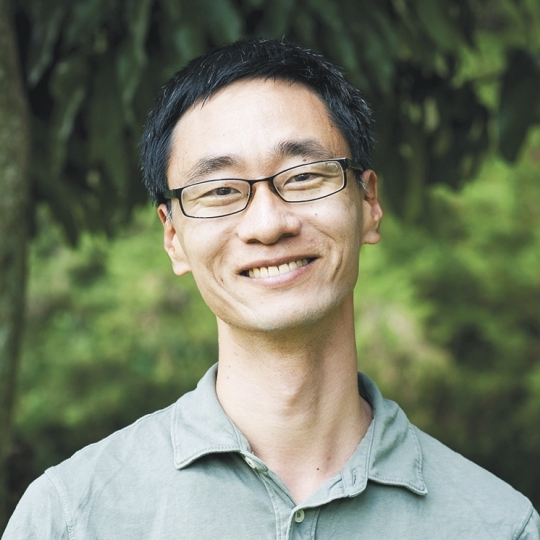
One Acre Fund is a non-profit organization that helps farmers feed their families and build stable economies by giving them loans and education.
Their goal is to help farmers make more money, and they can only do that with the help of their hardworking staff. The best way they can help farmers is by getting the most out of their employees.
More than 8,000 great people from 37 different countries get to work with One Acre Fund, which is an honor and a pleasure. Everyone on their team, no matter who they are or where they come from, should be able to make a full contribution, feel like they belong, and reach their full potential.
They started, like a lot of other businesses, with two teams: an international team and a national team. Their processes were set up with these divisions in mind. Even though they’ve been working on this problem since 2016, they’ve been moving way too slowly. Their multicultural team will only be successful if they take a stand against racism and do more than just make small changes.
They also take full responsibility for the history and the damage it has caused, and this knowledge drives their desire for radical change. They all agree that increasing One Acre Fund’s diversity, fairness, and inclusion is a morally and practically important matter that needs to be taken care of right away.
With the help of Ernst & Young (EY) and more than 4,600 employees, they did a thorough review of their diversity, equality, and inclusion (DEI) initiatives in 2020 so that they could move forward faster.
Their goals need to be turned into real improvements in how the organization’s employees work. As with their field operations, they want to face this problem head-on and with all of their resources.
How it Works
Model
This company helps small-scale farmers increase their yields and income by giving them things like farming tools, seeds, and fertilizers. They also give farmers access to markets, help them learn about farming, and protect them from the financial losses that can come from natural disasters.
Firstly, farmers want high-quality agricultural inputs like seeds and fertilizer. Secondly, people should be able to easily find information about how to plant and care for crops that do well in their climate. Last but not least, they have to find a place to store their food properly and then sell it.
People in very remote places can get high-quality goods and services from them, and they do it at a low cost. When farmers shop with them, they choose items that make good business sense for their farms.
They also help grow several crops that farmers and their families need to eat and give farmers commercial crops, animals, and trees to help them make more money in different ways.
Additionally, they work directly with farmers to give them services and work with other groups to reach as many farmers as possible.
Large & Small Scale Farmers
Eighty percent of the food in Sub-Saharan Africa comes from the small farms that feed more than fifty million households. But harvests are still far below the average for the world.
When farmers use the best seeds and farming techniques, they may be able to grow a lot more on the same amount of land. Just giving farmers tools that have been used before will do the trick.
One Acre Fund gives farmers all the tools and resources they need to boost their crop yields and income. Farmers only live in eight countries in Sub-Saharan Africa, but they serve all of them: Nigeria, Ethiopia, and the six countries around Lake Victoria.
If farms were more productive, farmers could feed their families and sell any food they didn’t need. By planting trees and other important crops, they can slowly build up money. If farmers make more money, they may be able to spend more on their children’s education and the growth of their communities.
Founders
Andrew Youn

Andrew Youn is the Co-Founder of One Acre Fund.
He previously worked at Mercer Management Consulting/ Oliver Wyman as a Consultant.
Andrew Youn attended Northwestern University – Kellogg School of Management.
Eric Pohlman

Eric Pohlman is the Co-Founder & Rwanda Country Director of One Acre Fund.
He previously worked at the Peace Corps as an Agroforestry PCV.
Eric Pohlman attended Georgetown University Walsh School of Foreign Service.
John Gachunga

John Gachunga is the Founder & Executive director at One Acre Fund.
Investors & Funding Rounds
Global Innovation Fund

A $15 million grant will help One Acre Fund test and scale up new farming ideas faster, which will increase the incomes of smallholder farmers.
GIF will help pay for One Acre Fund’s work in several important areas.
With the help of its large farmer network, One Acre Fund puts new ideas for farming to the test and helps them grow.
The funds will be used to drive improvements to agricultural systems around the world. This will be done through systematic and thorough research to find out what works in each country, initial scale through core farmers who serve as a market anchor and drive the rest of the system to adopt important farm technologies and practices.
Main Competitors
Accion: This is a worldwide organization that gives people access to financial resources to make their lives better.
Kiva: It is a non-profit organization that puts people from all over the world in touch with businesses in poor countries that need small loans.
Babban Gona: It has a franchise network of small-scale maize and rice farmers who use its low-cost agricultural inputs, financial services, and training.
Related:
Kamtar: Story, Founders, Investors & Funding Rounds








